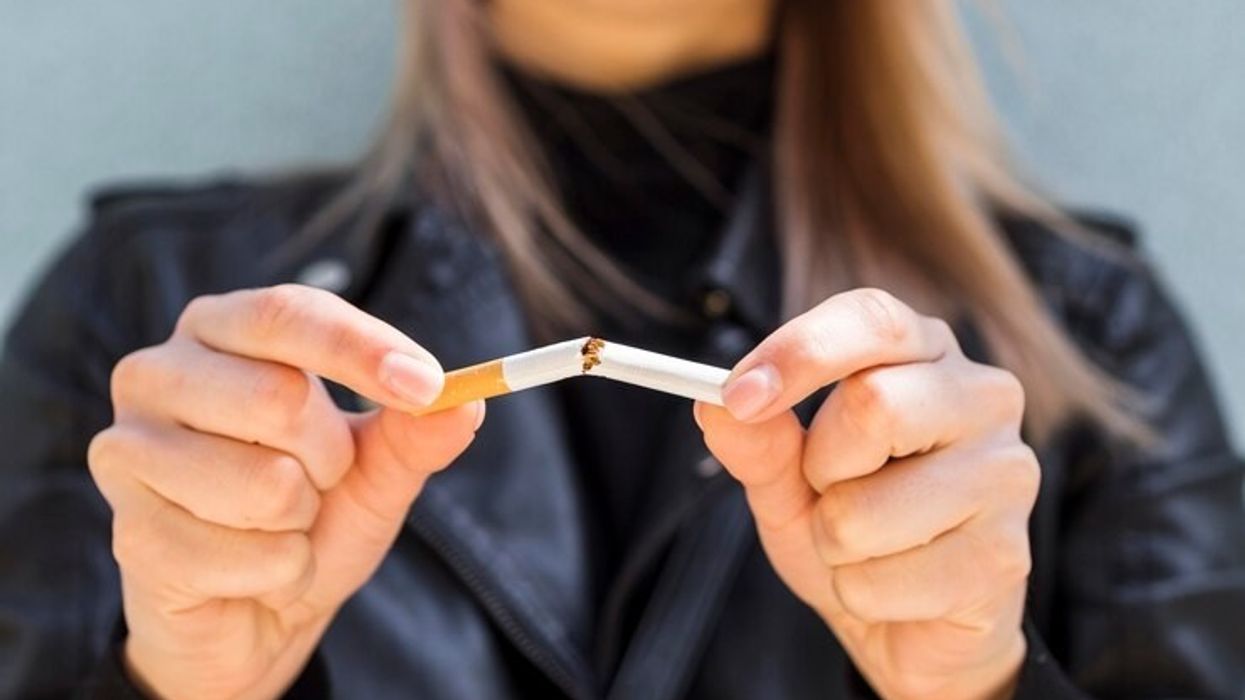All tobacco products, cigarette papers and herbal smoking products should be covered in the new legislation, says RPS
The Royal Pharmaceutical Society (RPS) has said that it strongly supports the UK government’s proposal that individuals born on or after 1 January 2009 should be prohibited from legally purchasing tobacco products.
It has also shown its agreement to several other actions proposed by the Department of Health and Social Care's (DHSC) for ‘Creating a Smokefree Generation and Tackling Youth Vaping’ including:
- The inclusion of all tobacco products, cigarette papers, and herbal smoking products in the new legislation.
- Restrictions on the sale and supply of disposable vapes, and vape flavours.
RPS President, Professor Claire Anderson, said: "Our recommendations reflect a commitment to creating a future free from the harms of tobacco and youth vaping. It's crucial to prohibit access for the youngest generation, regulate all tobacco-related items, and address the allure of flavoured e-cigarettes.”
The organisation said that it has outlined the key recommendations to address the pressing issue of youth vaping and tobacco consumption, drawing on its e-cigarette policy and the expertise of its Science and Research committee.
Restrict sale for tobacco products to adolescents
RPS explained that the age of sale for tobacco products should be changed to prohibit adolescents from legally purchasing the products, as “the adolescent phase, spanning from 12 to 18 years in humans, emerges as a particularly vulnerable period for the maturation of brain circuits governing cognition and emotion, rendering it susceptible to the impacts of nicotine and tobacco.”
“Prolonged exposure to nicotine during adolescence triggers noteworthy alterations in neurochemistry and behaviour,” it said.
Further, it stated that individuals who refrain from initiating smoking during adolescence are “statistically less inclined to take up smoking later in life.”
Proxy sales should also be prohibited
RPS also opined that anyone born before 1 January 2009 should be prohibited from purchasing tobacco products on behalf of anyone born on or after 1 January 2009 because “they increase accessibility and exposure of adolescents to tobacco.”
“Prohibiting the proxy sale of tobacco-containing products to adolescents aligns with a broader commitment to promoting public health, preventing addiction, and ensuring the wellrounded development of young individuals during a crucial stage of their lives,” it explained.
The organisation believes that including all tobacco products, including cigarettes, smokeless tobacco, and herbal smoking alternatives, in the new legislation, will ensure “uniform protection against the harmful effects associated with the use of these products.”
“This approach prevents potential loopholes that could be exploited by the relevant industry to market alternative products to adolescents,” it said.
Restrict vape flavours
The RPS agreed that the UK Government and devolved administrations should restrict vape flavours, and suggested that limiting the characterising flavours (the taste and smell) of vapes would be the most effective way to do so.
To check use of vape flavours in children and young people, they recommended restricting flavours to tobacco only, as it “eliminates the appeal of sweet and fruity flavours that often attract young people to start vaping.”
Additionally, it outlined the need for restrictions on the sale and supply of disposable vapes, particularly those that are not rechargeable, not refillable, or neither rechargeable nor refillable.
“Restricting the sale of non-rechargeable and non-refillable vapes aligns with broader environmental sustainability goals. Disposable vapes contribute significantly to environmental harm due to their single-use nature. The batteries and materials used in these devices can pose challenges for proper disposal and recycling,” it said.
The RPS is also in favour of the inclusion of non-nicotine e-liquid, for example shortfills, in restrictions on vape flavours.
Moreover, it opined that vapes shouldn’t be allowed to be displayed at the point of sale, like tobacco products, to limit the exposure of children.













